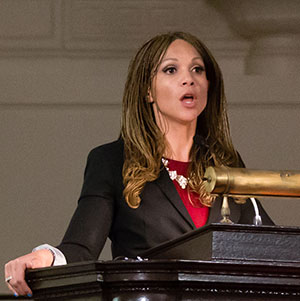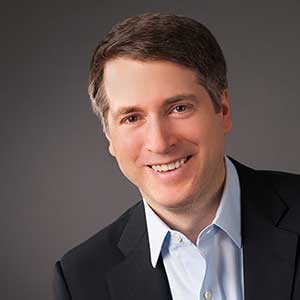Cornell Brook / March 24

We’ve reached “an anguishing hour of our democracy,” said the president and CEO of the National Association for the Advancement of Colored People, calling out some problems he sees: a normalization of anti-Semitism, the mainstreaming of misogyny and “Machiavellian voter disenfranchisement.” A new generation of activists—people who stood against the “vicious vectoring upward” of such problems—are now refusing “to join the committee of hand-wringing pessimists,” he said. “There is much to be hopeful about, much to be confident in, when we look at this generation of activists,” added Brooks, whose son is an Amherst sophomore. “Students all across the country assert with confidence that we can do things differently.” —Rachael Hanley
Jeb Bush/Jan. 31

After sharing a self-deprecating story about a stranger in an airport who exclaimed, “You used to be Jeb Bush, right?,” the former Florida governor argued that it is automation and artificial intelligence, not immigration, that is interrupting the American Dream. Whether through improved UPS routes that make drivers redundant or self-serve soda machines that replace movie theater attendants, he said, the trend is toward efficient systems beating out low-skilled labor. “For the first time in American history, people don’t think their children will have more opportunities than what they had,” Bush said. He suggested, among other ideas, energy reforms that encourage competition and immigration policies that favor increasing the number of skilled workers instead of reunifying families. —by Rachael Hanley
Melissa Harris-Perry/March 27

Rich Lowry/March 8

Masha Gessen/Jan. 26

In making the case that Donald Trump and Vladimir Putin have nine traits in common, the journalist and activist described Putin as “the despot that Trump plays on TV.” She noted that both men, reinforced by self-aggrandizing media bubbles, govern through rapid, powerful gestures such as executive actions, and she maintained that both have fleeting interests rather than extended priorities—which makes them difficult to predict but popular within their own parties. Both also disdain moral authority and an open, public sphere, Gessen argued, as well as concepts of excellence and originality. And perhaps most important, she said, both have “absolute and utter disdain for government.” —by Rachael Hanley